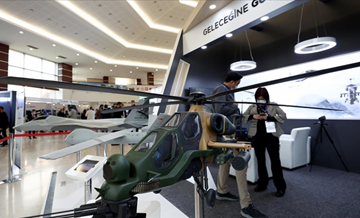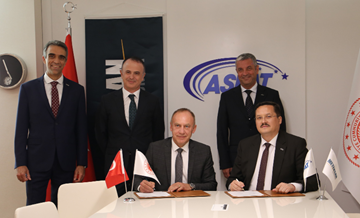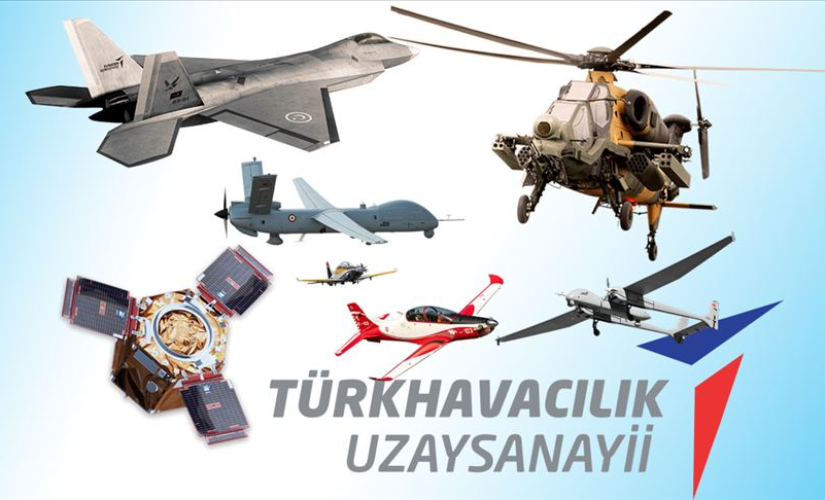Rapidly developing artificial intelligence (AI), depending on technological advances, has a significant impact on developments related to international security and foreign policy, as well as many different fields. This is due to the fact that states see technological developments in artificial intelligence as an opportunity to increase their military power.
States strive to plan their AI management activities, especially for the purposes of gathering and analyzing intelligence, creating new logistical opportunities, developing and managing cyber space operations, and producing more sophisticated types of military weapons compared to the past.
Although the British mathematician, computer engineer and cryptologist Alan Turing was the master of the idea, the conceptual foundations of AI were laid by a group of pioneering scientists at a conference held at Dartmouth University in 1956. In this conference, artificial intelligence was presented as AI for short, and it was suggested to the scientific world to investigate the possibility of designing intelligent computers. In the past 60 years, such technologies have gained a new dimension with the increase in the processing speed of computers, the development of AI research and the creation of systems close to human intelligence. Many definitions can be made about artificial intelligence. In short, AI, “without the supervision and supervision of any human,
On the other hand, it can be argued that AI triggers military competition processes between states. For this reason, it is clear that the developments originating from AI technologies have given states new capabilities and advantages in terms of intelligence gathering and analysis, producing more effective military tools and equipment, facilitating military logistics facilities, and carrying out complex cyber attack planning.
Considering that autonomous systems do not get tired of renewal and can be easily substituted, AI's contribution to the armed forces in this area will increase in the future. AI technologies, which can calculate many possibilities thanks to their high processing power, will make significant contributions to the armed forces in terms of success.
However, there are some disadvantages as well as the effective military advantages provided by AI-based technological facilities. It can also be argued that this situation has led to the formation of challenges that were not experienced before in the struggle of states within the scope of the global power struggle. In this context, it is known that security and defense related AI products, models and applications cause complications, especially in human-machine compatibility and elimination of unpredictable risks in real conflict environment. Difficulties in transforming a large number of data rapidly obtained with AI products, models and applications in the defense sector into human-minded planning are also disadvantages that should be mentioned.
The USA, China and to some extent Russia are prominent in the development of AI technologies. The three countries in question are leading the development of the military and intelligence AI sectors with the AI models, programs, algorithms and machines they have developed. China and the USA, on the other hand, show their efforts to develop this sector for military purposes with the official artificial intelligence strategy documents they publish.
US and China's AI strategies and operations
As such, US technology companies invested between $ 20 and $ 30 billion in the AI industry in 2016. This figure is estimated to rise to 126 billion by 2025. At this point, the AI emphasis in Russian President Vladimir Putin's statement in 2017 is also remarkable. Putin said, “AI will come not only for Russia, but also for all humanity… AI could bring huge opportunities. But at the same time, AI can make threats difficult to anticipate. "Whoever is a leader in AI will also be the ruler of the world." In China, which is in a global struggle with the USA, officials have announced that their investments in AI sectors will be 150 billion USD by 2030.
Other states are taking steps in this regard in proportion to their economic size and technological possibilities. For example, South Korea and Singapore's investments in the AI sector include both military and commercial objectives. Canada, New Zealand, Australia and some European countries, which have problems with increasing military personnel capacity and also have high levels of welfare, see AI technologies as a new opportunity to fill these gaps. For this reason, these countries allocate substantial budgets to increase military capacities in the AI sector. Similarly, in the national defense strategy of France announced in 2017, the AI sector was defined as a field that provides operational superiority.
Another state that sees AI technologies as an important area in the race for global leadership is the UK. The UK published the Artificial Intelligence Sector Document in April 2018. This document, which is part of the UK's large-scale industry strategy, aims to make the country one of the global leaders in AI. In this context, it aims to invest in AI sectors, develop digital infrastructure and increase AI capacity by strengthening public and private sector cooperation.
Not only states but also international organizations such as the European Union (EU) are planning to develop AI strategies. In this context, the EU Commission accepted the Communication AI for Europe document in April 2018. The aim is to increase the technological and industrial capacity of the EU, to accelerate the public and private sector's understanding of AI developments, to prepare Europeans for the socio-economic changes introduced by AI, and to prepare an appropriate ethical and legal framework for AI. In addition, the EU aims to increase AI investments from 500 million euros in 2017 to 1 billion euros by the end of 2021, and the annual investment in AI to 20 billion euros by 2030.
States strive to plan their AI management activities, especially for the purposes of gathering and analyzing intelligence, creating new logistical opportunities, developing and managing cyber space operations, and producing more sophisticated types of military weapons compared to the past.
Countries' global investment and financing shares in AI
As a result, it is clear that AI will make a significant contribution to the volatile operational environment of the future in terms of the ability of an army leadership to make rapid decisions. Considering that autonomous systems do not get tired of renewal and can be easily substituted, AI's contribution to the armed forces in this area will increase in the future. AI technologies, which can calculate many possibilities thanks to their high processing power, will make significant contributions to the armed forces in terms of success. AI practices in areas such as officer training, fighter pilot training, and technician training will play an important role in the future of the armed forces. AI technologies in the field of intelligence, such as image software, fast and reliable analysis of data such as photographs and videos, and face recognition systems, will provide new opportunities for states. In this context, it is an indisputable fact that AI will play a key role in the future power capacities of armies. Therefore, developments in this area should be followed closely and AI studies should be prioritized in security technologies and military technologies.
[Assoc. Dr. Ali Burak Darıcılı continues his work in the fields of intelligence, cyber security, terrorism and technology-security interaction]






